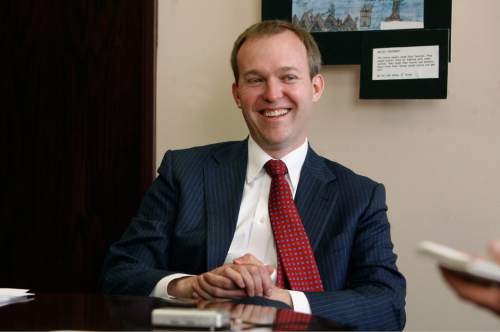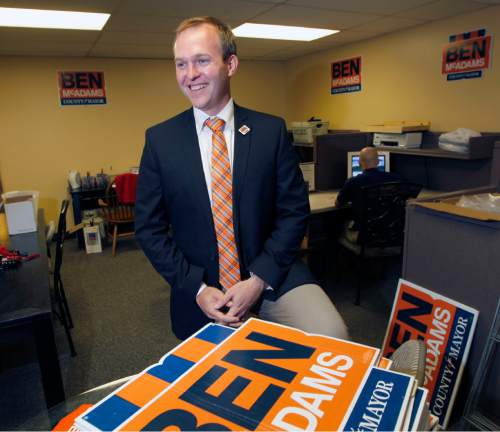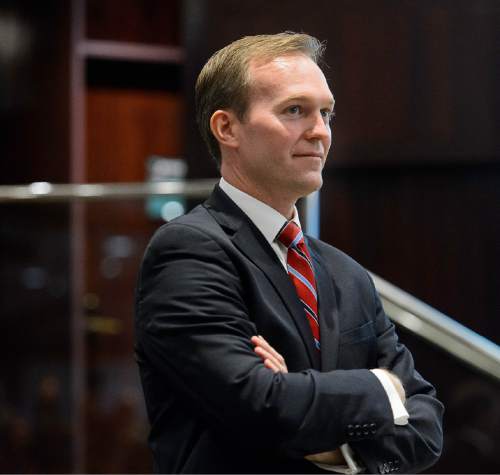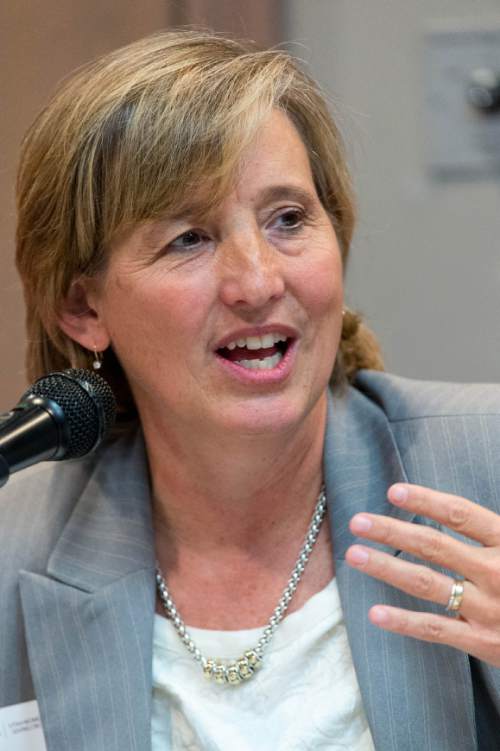This is an archived article that was published on sltrib.com in 2015, and information in the article may be outdated. It is provided only for personal research purposes and may not be reprinted.
Business and government leaders announced a major effort Wednesday to expand overseas exports from Salt Lake County companies and boost foreign investment in the region's economy.
After months of discussion, the Salt Lake City metropolitan area has officially joined the Global Cities Initiative, a city-focused international trade-promotion plan backed by U.S. banking giant JPMorgan and researchers with the Brookings Institution.
Utah's export levels are strong by U.S. standards, but they draw heavily from its mining and energy industries. The new initiative, announced Wednesday at the University of Utah's David Eccles School of Business, aims to identify other key industries and primarily midsize companies ripe with export potential and help them connect with markets abroad.
"If we can find ways to export more, it will have great benefits for our regional economy," said Amy Liu, co-director of the Global Cities Initiative and a senior fellow at the Brookings Metropolitan Policy Program. "It leads to higher levels of job growth, higher levels of output growth, and these are good quality jobs."
Launched three years ago, the Global Cities Initiative is a five-year undertaking to help city leaders in various locales enhance global trade through networking, advice and data- driven research on cities' regional strengths.
The Salt Lake City metro region joins 28 other urban areas that are part of the JPMorgan-Brookings effort, with other newcomers including Baltimore, Houston, Seattle, Philadelphia, St. Louis and Kansas City, Mo.
Liu said several growing Salt Lake County industries were strong candidates for export and foreign-investment expansion. These include medical-device and precision- equipment manufacturing, computer-systems design, architectural engineering, management consulting, and Web search portals and Internet publishing.
Utah underperforms relative to other states on foreign investments in its economy, she said, with the exception of its mining and hospitality sectors.
Salt Lake County Mayor Ben McAdams said the Global Cities Initiative would yield a detailed export and foreign-investment plan for the region, to be unveiled in early 2016. As the July 24 Pioneer Day holiday approached, the first-term county mayor said the push marked a kind of turnabout in state history from the days of pioneer in-migration.
"Before, we were bringing the world to Utah," McAdams said. "Now, how do we take Utah to the world?"
Today, Utah exports about $12 billion in products and merchandise yearly and between $5 billion and $6 billion in services, according to economist Natalie Gochnour, an associate dean at the U.'s business school. Data show the state's leading trade partners are China, Canada, Mexico and Japan.
"Just imagine if that went away," Gochnour said. "If we don't engage in such a high-growth opportunity, we put at risk the ability of our children and grandchildren to stay in Utah."
The U.S. has robust trade agreements with 21 nations and is negotiating more, including a major new pact with Asian nations.
Between now and 2020, 81 percent of the world's economic growth will occur outside U.S. borders and up to half the world's consumers will reside in nations such as India and China, according to research by the Brookings Metropolitan Policy Program.
Those and other trends make clear, Liu said, that international trade and direct investments from overseas offer far more promise of economic prosperity for Utahns in coming decades than more typical campaigns to attract new domestic businesses.
"Instead, they should spend more time working with your existing firms, help them learn about exporting opportunities, help them expand their customer base so they can grow," she said. "That really has become the new arsenal in business retention and expansion."
Twitter: @TonySemerad









